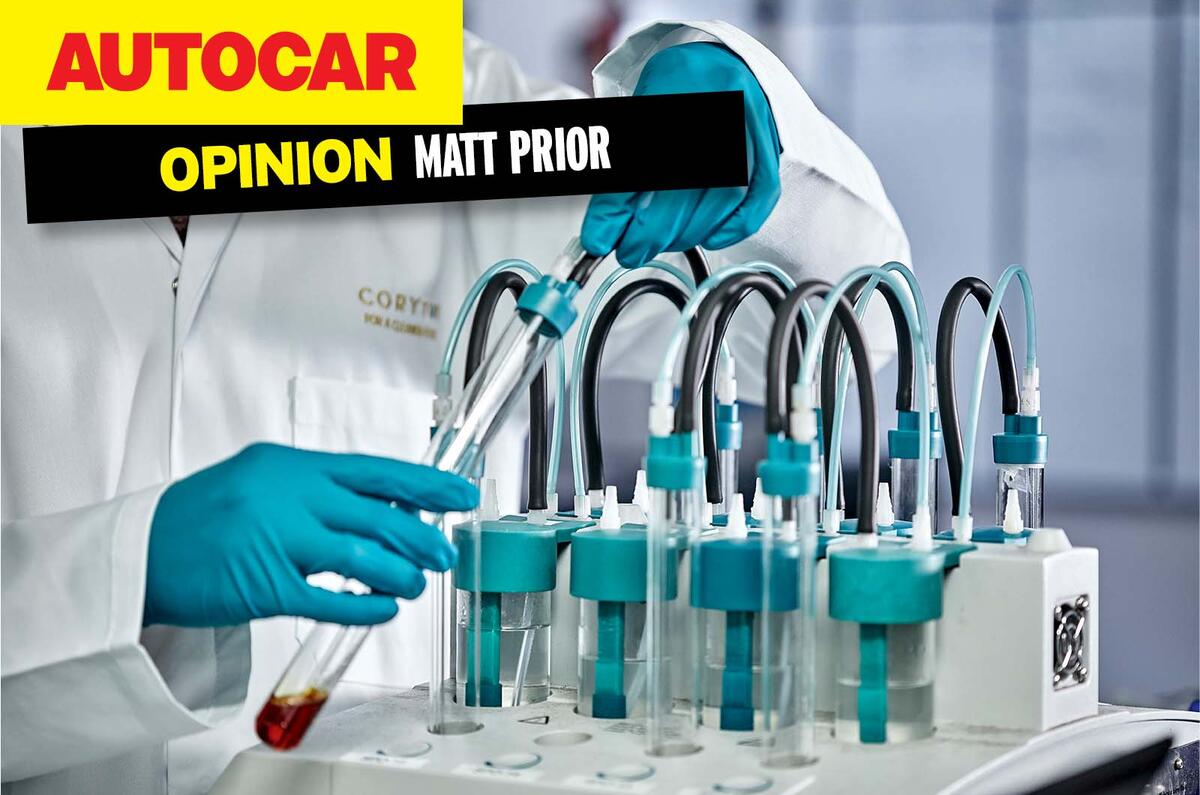Elements of the German car industry pushed hard last year for ICE cars to be allowed to remain on sale in the EU after 2035 – and they got their way, provided such cars use only carbon-neutral fuels.
But that might not be enough, said BMW Group CEO Oliver Zipse.
Unless the EU accelerates the availability of such fuels, it will amount to “a deliberate ban on [ICEs] through the back door”.
The problem here (if you want to perceive it as such) is that the car industry is, despite what some will tell you, actually moving quickly. Too quickly for synthetic e-fuels to arrive in large quantities and at sensible cost.
The EU requires that “all new cars and vans registered in the [EU] market are zero-emission by 2035” and that “average emissions of new cars come down by 55% by 2030” from 2021’s level.
Vans get only a slightly easier time on the rate of reduction, while discussions about heavy road haulage are still ongoing.
(The UK’s regulations are different, more stringent again and, unlike EU laws, mandate percentages of car sales being zero-emission, which is why we are now seeing and will continue to see market disruption and distortion, such as firms selling electric cars at losses and Suzuki becoming unable to sell its lightweight superminis.)
Other transport industries are moving at a slower pace – understandably, given the lifespans and costs of the vehicles involved and the inviability of battery electrification.
Within the EU, aerospace companies need to reduce their CO2 emissions by 20% by 2035, by which time passenger jets must use a blend of 5% synthetic fuel. Maritime companies must achieve a 14.5% CO2 reduction by 2035, although they have no requirement for synthetic fuel use.
No such requirements yet exist for vehicles used in off-highway agriculture and construction, but they will surely come at some point. The presumed answer for applications where battery electrification isn’t viable – which is on most of those heavy-duty, high-altitude or long-distance trips – will be synthetic fuels.
“Aviation will use jet fuel indefinitely,” said Paddy Lowe, CEO of British firm Zero Petroleum, which has begun making small quantities of synthetic gasoline, diesel and jet fuel without using fossil fuels, instead utilising CO2 from the air and hydrogen from water.









Join the debate
Add your comment
In the 1900's the makers of horse-drawn carriages would run newspaper ads attacking cars and saying that they would never catch on. History shows how wrong they were. Now we have this writer attacking EVs and saying they will never catch on. Different era, same issue, same result?
Not really, cars will continue to exist just the engines they use will be different. Its one of the reasons why the environmental nuts that are in local councils are desperate to throttle every city they're in charge of. Desperate to take away road capacity, and price people out of towns. They know their environmental argument is null and void when cars are EVs, and then people will once again be free to enjoy their cities.
41% of German palm oil imports go into bio-fuels. More than Germany imports for food products. Germany imports palm oil from an area at high risk of tropical deforestation to put into cars. It then counts this towards its 'renewable energy' targets. In reality, biofuel from palm oil results in more carbon emissions than petrol and diesel. Plus you still get all the air pollution. Bio-fuel is not a solution.
Bio fuels and synthetic fuels are not the same thing. The latter very much is a solution, or should be.
And there you have some examples of how the public in general think of so called road improvement, the trouble is, nobody has the solution.
Are they improvements? Because arguably they're all designed to reduce road use.